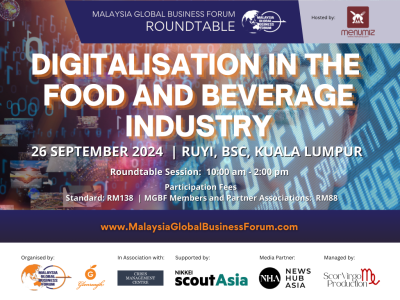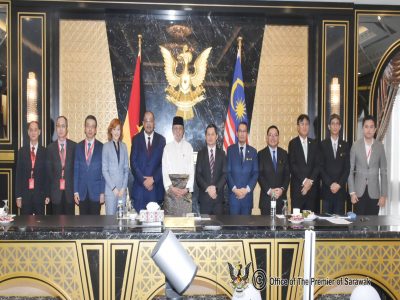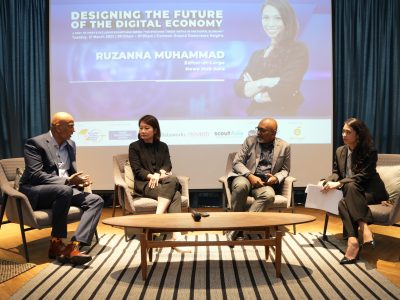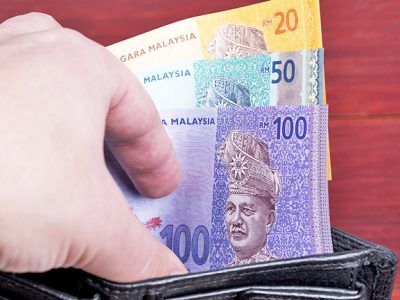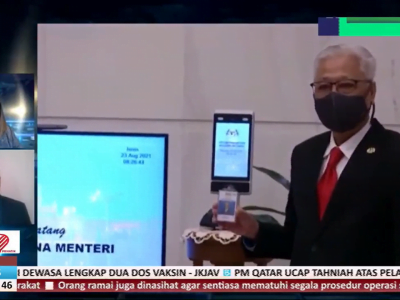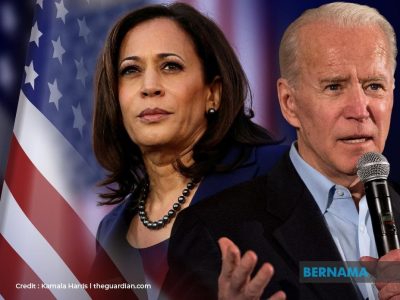Study shows that consumer electronic brands in Hong Kong win trust for their product quality and efficacy over their counterparts in mainland China, but fail in communication and rewards
ICLP study reveals that consumers want brands to respond to them on social media
17 October 2017 – Hong Kong has long been a prime destination for keen-eyed shoppers of high-quality, low-priced consumer electronics. But aside from competitive pricing, what else can brands do to differentiate themselves from their competitors, attract returning customers and create top-of-brand-awareness? According to a recent study conducted by global loyalty marketing agency ICLP, consumer electronic brands in Hong Kong deliver in terms of quality and efficacy of products, allowing them to win the trust of consumers. However, Hong Kong shoppers find their favourite electronic brands trail their counterparts in mainland China when it comes to communication and offering tailor-made rewards, which are vital for customer loyalty.
“Fostering a loyal relationship with customers goes beyond providing good products. To maintain competitiveness, electronic brands in Hong Kong have to put more emphasis on communicating the latest products and trends specific and relevant to a customer’s preferences, responding to them instantly and rewarding them with special and exclusive events and offers,” comments Mary English, Executive Vice President – APAC at ICLP.
Consumers want brands to respond to them on social media
Hong Kong consumers believe that electronics brands perform well in the delivery of quality and efficacy, which helps win their trust. Brands also do well in the area of reliability such as providing an after-sales service and product guarantee.
- Nearly half of Hong Kong consumers (47%) trust the quality and efficacy of the brands’ products.
- Half say that they can rely on the brands to take care of an issue with a product.
However, brands have room for improvement in terms of communication and rewards if they are to build long-term relationships with customers, according to the ICLP study.
- Only 17% of Hong Kong consumers received something in return for sharing their personal information compared with 36% in mainland China.
- Only 20% are rewarded with personalised offers compared with 33% in mainland China.
- Under a quarter (23%) are offered exclusive experiences compared with 36% in mainland China.
- Less than a third (27%) receive responses on social media compared with 39% in mainland China.
- Less than a third (27%) are kept up to date on the latest trends compared with 45% in mainland China.
The study also revealed that 51% of mainland Chinese shoppers expect to grow and improve their relationship with brands as they learn more about each other compared with only 27% of shoppers in Hong Kong. The higher expectations of developing a long-term relationship with brands are reflected in the levels of reciprocity in the survey findings: close to 40% shoppers in mainland China feel that they are appreciated as regular customers by their favourite brands (versus only 27% in Hong Kong) and 36% report receiving rewards from brands in return for sharing their personal information.
Mary English commented, “These findings reveal that consumers, whether in Hong Kong or mainland China, expect more from consumer electronics brands than they are currently delivering. Brands in Hong Kong need to focus on communicating with their customers; in particular, actively listening and responding to them in real time on social media, which is becoming increasingly crucial to tap into digitally savvy consumers.
While many loyalty programmes stick with only traditional forms of communication such as SMS or email, social media broadens a brand’s reach in providing consumers updates on products and trends and is recommended for use with associated social data analytics that allows brands to understand their customers’ behaviour. It also provides the opportunity to identify key opinion leaders (KOLs) to represent the brand. Meanwhile, in view of the competitive pricing of this sector, rewarding shoppers with special offers and exclusive experiences is becoming important for attracting and retaining their custom.
Brands in mainland China, on the other hand, are performing better in terms of communication and rewards, which can be explained by the popularity of WeChat and Weibo and online customer servicing. It is also not uncommon for brands in the mainland to offer a wider choice of gifts and personalised offers to reward shoppers for their purchase, instead of providing a standard premium for customers as brands in Hong Kong do. However, brands in the mainland need to beware of the lower trust placed in product quality and efficacy compared with Hong Kong and make efforts to improve consumer perception of product reliability by taking responsibility when there are issues.
Consumer electronic brands in Hong Kong are not losing their lustre, but they do need to be more active in creating emotional connections through an engaging loyalty programme in order to build stronger relationships with their customers.”
– ENDS –
Methodology
*Deeply Devoted Research undertaken by Survey Sampling International across 750 Hong Kong consumers and 1008 Mainland Chinese consumers, on behalf of ICLP, July 2016. Random error on a sample of this size is +/- 2.2% at the 95% confidence level.
About ICLP
ICLP is a leading end-to-end loyalty agency that drives customer devotion for clients across multiple sectors, including retail, travel and technology. ICLP transforms customer relationships into personalised, profitable and emotional connections.
Blending data analytics, strategy, technology and creative expertise, ICLP delivers customer-centric engagement strategies that help brands to drive acquisition, repeat purchase and advocacy.
With over 25 years of experience and 26 global offices across Europe, the United States, Middle East, Asia and Australia, ICLP drives devotion for global brands including Dunhill, Harrods, L’Oréal, Estee Lauder, Carlson Rezidor Hotel Group, Esprit, Cathay Pacific and Guess.
ICLP is part of the Collinson Group, a global leader in influencing customer behaviour to drive revenue and value. Collinson Group offers a unique blend of industry and sector specialists who together provide market-leading experience in delivering products and services across four core capabilities: Loyalty, Lifestyle Benefits, Insurance and Assistance.
For more information, please visit http://www.iclployalty.com.
Additional Information:
Study parameters: The study was based on seven components of loyalty – recognition, rewards, reciprocity, reliability, respect, trust and communication, where primary data was combined with Sternberg’s Triangular Theory of Love, a prominent theoretical model in psychology and human relationships.
From these, we have extracted six key types of relationships with brands, which match the types (or a combination of types) of human relationships identified by Sternberg:
o Empty relationship: Loyalty to the brand due to trust in the quality of products and services, but no engagement
o Liking relationship: Consumers in this type of relationship like the brand or retailers because they offer consistent quality and value for money, but are not engaged and likely to switch when the next best offer comes along
o Casual relationship: A little bit of passion, intimacy and commitment, and consumers in this type of relationship like the retailer, but are not overly excited about it and avoid getting too engaged
o Romantic relationship: Consumers in this type of relationship are enthusiastic about a brand, but are not very loyal and will not shy away from shopping with other retailers on occasion
o Companionate relationship: Consumers in a companionate relationship with their preferred brands or retailers are more loyal and willing to share information with the brand, but not out of passion – this is out of commitment
o Devoted relationship: Enthusiastic about a brand or retailer, engaged, very loyal and strong advocates
Consumers’ relationships with brands are fluid and can change from one type to another. It is also worth noting that these are not linear relationships.
Components of human relationships and how they relate to brand relationships:
o Intimacy – Willingness to share information and interest to get information about the brand
o Passion – Brand enthusiasm
o Commitment – Loyalty
1Sternberg’s Triangular Theory of Love
| This press release was distributed by Strategic Communications Consultants Limited (SCC) on behalf ofICLP. For further media enquiries, please contact:
Strategic Communications Consultants Limited (SCC) |
|
| Terence Lo
Tel: (852) 2114 4985 / 9820 4996 Fax: (852) 2114 0880 Email: terence.lo@sprg.com.hk |
Serena Tang
Tel: (852) 2114 4348 / 61515507 Fax: (852) 2114 0880 Email: serena.tang@sprg.com.hk |









